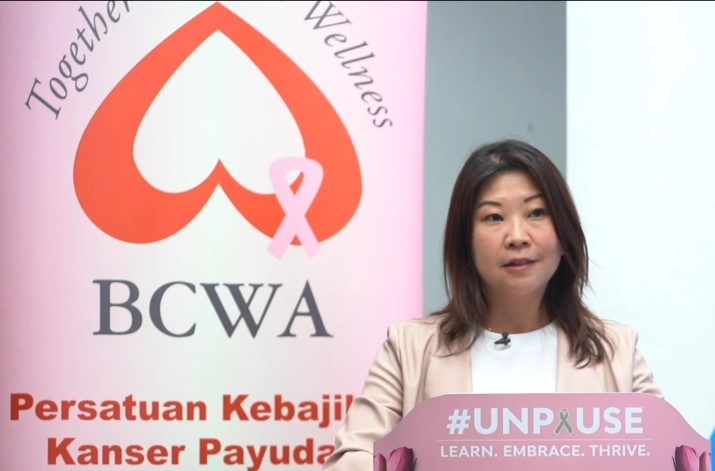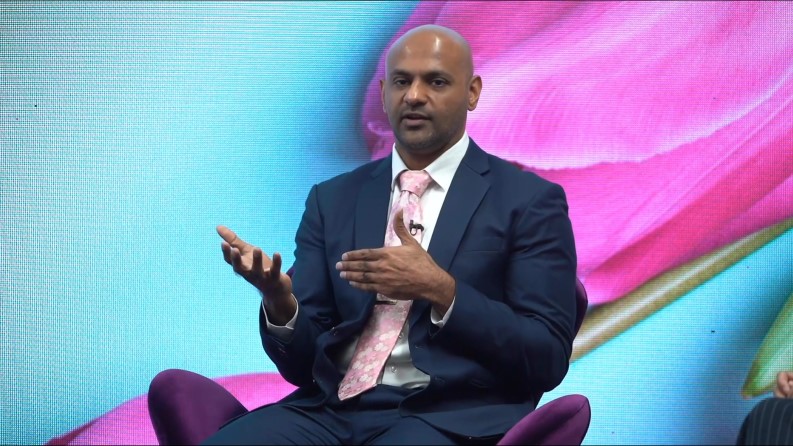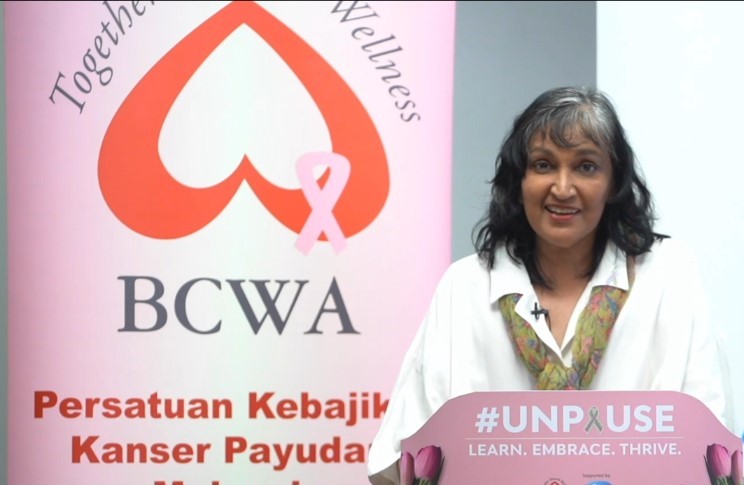KUALA LUMPUR, Nov 24 — A Malaysian advanced breast cancer patient has been surviving for over eight years since her diagnosis, after she joined a clinical trial that gave her access to new treatments.
On October 8, during the launch of the “#UnPause” community initiative on metastatic breast cancer by the Breast Cancer Welfare Association (BCWA), supported by pharmaceutical company Pfizer Malaysia, BCWA president Ranjit Kaur shared the mathematics teacher’s inspiring story.
The teacher progressed to develop metastatic breast cancer, or advanced breast cancer, later on after she was first diagnosed with breast cancer. After seeking several doctors’ opinions, she managed to enroll herself into a clinical trial.
“Today, she is still alive. She’s a mathematics teacher in a government school, still continuing to work and she will be retiring next year,” Ranjit said.
“She has been a real role model for us because she climbs mountains and she goes trekking.”
Consultant clinical oncologist Dr Malwinder Singh said that although metastatic breast cancer is not curable, it is treatable hence, the goal for a patient should always be good quality of life.
Dr Malwinder said that although there are various treatments available, such as chemotherapy, targeted therapy, and immunotherapy, the treatment for each patient should be personalised.
“Not every treatment is suitable for everybody. New drugs are actually very expensive and one way to get it is actually by enrolling themselves into clinical trials.”
He highlighted that by enrolling into clinical trials, patients get the advantage of getting expensive drugs for free.
Dr Malwinder added that several financing options in Malaysia support advanced breast cancer patients, including the Social Security Organisation (Socso), the Employees’ Provident Fund (EPF), and patient assistance programmes like EMBRACE.
“EMBRACE is a patient assistance programme by Pfizer to support HR+/HER2- mBC (metastatic breast cancer) patients’ treatment continuity for improved outcome and better quality of life. Through this programme, mBC patients can better plan their finances and gain access to innovative medical treatment,” said Pfizer Malaysia vaccines and oncology category lead Janice Yong in a statement.
“In 2019, we launched the EMBRACE programme to put effective treatment in the hands of those who need it so that patients can live their lives to the fullest. The programme has been a great success, as we have aided 400 mBC patients to gain access to innovative medical treatment,” she added.
Cancer Patients Disproportionately Affected By Covid-19 Pandemic

BCWA highlighted disruptions of cancer treatment during movement restrictions in Malaysia amid the Covid-19 epidemic.
The breast cancer patients’ group cited Cancer Research Malaysia’s April survey that found almost half of cancer patients were concerned about attending hospital appointments due to fear of coronavirus infection.
Although people with weakened immune systems due to cancer, chemotherapy, radiation and other treatments face higher risk of contracting and succumbing to Covid-19, BCWA urged cancer patients to consult their oncologist about the risks of postponing treatment versus reducing their risk of Covid-19 infection.
“Many hospitals and cancer clinics have taken appropriate steps designed to minimise the risk of Covid-19 transmission. Where possible, some centres are also offering virtual appointments, in which patients and physicians can meet online. Consult your health care providers for advice on safe visits and options available,” said Dr Malwinder.
Stigma Towards Cancer Patients

According to Ranjit, who is also a cancer survivor, people generally look at cancer patients differently and stigmatise them.
“When people look at a cancer patient, the way they look is like you’re going to die.”
Ranjit said although they don’t say it verbally, their facial expression says it all and that is very detrimental to the patient.
“Since the 1950s, cancer has gotten this very bad reputation that it’s like a death sentence. Looking at the patient and saying, he or she must have done something wrong and that is why he or she got cancer.”
Ranjit stressed that the support of friends, family, and community gives advanced breast cancer patients the promise that life can go on for the patient, and that the patient can continue to live life without being stigmatised.
Ranjit, who leads BCWA, said that their community outreach team is constantly trying to dispel myths and misinformation of metastatic breast cancer due to huge stigma.
“This stigma is not only related to society’s misconception, but also the self-concept of the patient feeling stigmatised. This includes body-image issues, social isolation, feeling marginalised, enduring stress, behavioral change, treatment- and cost- related issues and more,” Ranjit said at the launch of “#UnPause”.
The “#UnPause” event is a community initiative to rally metastatic breast cancer patients to live life to the fullest, provide public awareness, as well as avert treatment disruptions caused by the Covid-19 pandemic.
Visitors can find more information on this website on metastatic breast cancer treatment options, support groups, financial assistance, video stories of courageous patients that would help those living with advanced breast cancer feel less isolated, as well as upcoming #UnPause initiatives.








